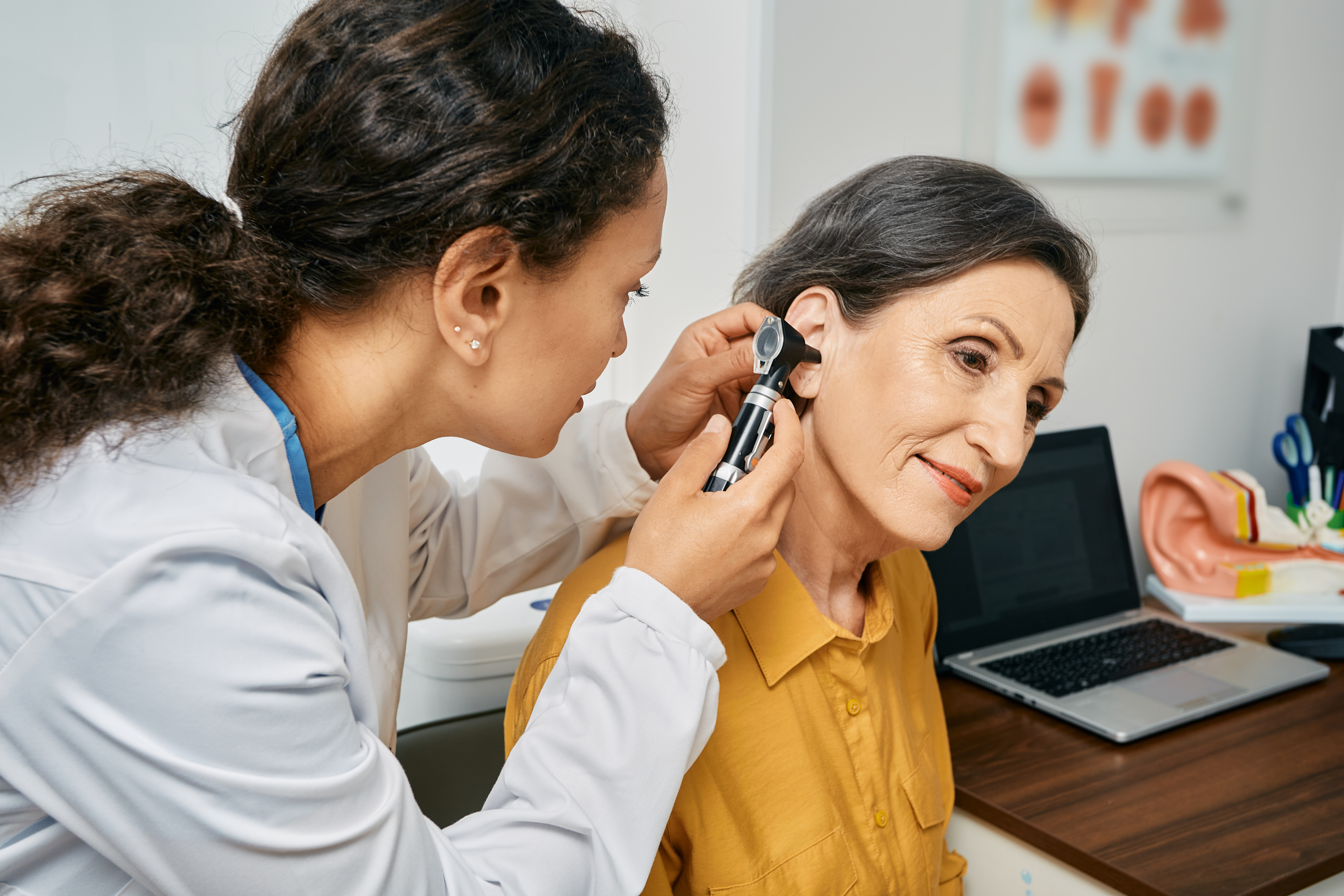Otolaryngology Insights: What Patients Should Know
Otolaryngology Insights: What Patients Should Know
Blog Article
Checking out the Area of Otolaryngology: What to Expect When You Seek Advice From an ENT
Otolaryngology, frequently described as ENT, includes the diagnosis and therapy of throat, nose, and ear problems. For those experiencing associated problems, speaking with an ENT expert can supply clearness and relief. Comprehending what to expect during such appointments is vital for efficient interaction and treatment. This overview will outline crucial elements of the ENT experience, consisting of usual reasons for sees and the procedures associated with diagnosis and treatment.

Comprehending Otolaryngology: A Review
Otolaryngology, often referred to as ENT (Ear, Nose, and Throat) medication, is a specialized branch of medication that focuses on the diagnosis and treatment of problems influencing these vital locations of the body. This field includes a large range of problems, including those associated to hearing, equilibrium, breathing feature, and speech. Otolaryngologists are trained to handle both medical and medical treatments, using advanced methods and modern technologies. Their competence extends beyond standard ailments, attending to concerns such as allergic reactions, sinus infections, and hearing loss. In addition, they play an essential role in the management of head and neck cancers, providing extensive care customized to specific patient demands. On the whole, otolaryngology stays necessary for maintaining health and quality of life in afflicted people.
Common Factors to See an ENT Professional
Several individuals look for the know-how of an ENT specialist for a range of factors, mirroring the diverse nature of problems that affect the throat, ear, and nose. Usual problems consist of persistent sinus problems, which often causes persistent nasal blockage and facial pain. Allergic reactions and their linked signs, such as sneezing and itching, additionally trigger visits to these experts (Sinus). Hearing loss, whether progressive or sudden, is another considerable reason for examination. In addition, people may look for examination for throat problems, including persistent hoarseness or swallowing troubles. Rest apnea, defined by disrupted breathing during sleep, is regularly attended to by ENT experts. Each of these conditions highlights the relevance of specialized care in taking care of complicated ENT-related health and wellness concerns
Planning for Your ENT Appointment
When planning for an ENT visit, it is vital to collect appropriate info and think about any certain issues. Individuals should compile a detailed medical background, including previous ear, nose, or throat problems, surgical treatments, and existing medicines. Documenting signs and symptoms-- such as regularity, severity, and period-- can supply useful insights for the ENT expert. In addition, people need to prepare a list of questions they wish to ask, guaranteeing that all concerns are resolved during the see. Bringing along any kind of relevant medical records or examination results can better help the ENT in comprehending the individual's condition. Ultimately, clients must confirm their visit details, consisting of location, time, and date, to minimize any type of final complication. Correct prep work can enhance the performance of the assessment and cause far better results.
What to Expect During the Consultation
As the examination starts, the person can expect to take part in a complete discussion with the ENT expert regarding their symptoms and case history. The professional will ask about the period, frequency, and extent of signs and symptoms such as hearing loss, nasal blockage, or aching throat. Furthermore, the patient's previous medical conditions, medicines, and any kind of pertinent family members background will certainly be assessed, assisting the specialist in forming a full understanding of the person's health and wellness. The ENT may also inquire about way of living aspects, such as exposure to toxic irritants or irritants. This open dialogue establishes a structure for the consultation, ensuring that go the patient's worries are attended to and setting the phase for any essential evaluations or referrals for therapy.
Analysis Examinations and Procedures in Otolaryngology
An array of analysis tests and procedures are vital in otolaryngology to accurately evaluate and identify conditions influencing the ear, nose, and throat. Common tests consist of audiometry, which measures hearing feature, and tympanometry, analyzing middle ear stress. Nasal endoscopy enables visualization of the nasal flows and sinuses, while laryngoscopy checks out the throat and vocal cables. Imaging techniques, such as CT scans and MRIs, provide thorough views of head and neck structures. Allergy screening may also be conducted his explanation to recognize triggers for sinus or respiratory issues. These analysis devices make it possible for ENT professionals to create an extensive understanding of clients' conditions, making certain customized and efficient management strategies. Correct medical diagnosis is necessary for successful treatment results in otolaryngology.
Treatment Choices Supplied by ENT Specialists
ENT specialists provide a range of treatment alternatives customized to deal with specific problems affecting the nose, throat, and ear. These treatments range from conventional techniques, such as medication and way of living alterations, to more intrusive treatments. For example, allergies may be taken care of with antihistamines or immunotherapy, while persistent sinusitis may need nasal corticosteroids or sinus surgical treatment. For hearing loss, ENT professionals typically advise hearing help or surgical interventions like cochlear implants. In situations of throat problems, options can include speech treatment or operations to remove blockages. Furthermore, they might offer advice for managing sleep apnea, including using CPAP gadgets or medical treatments. In general, the goal is to improve individuals' high quality of life with personalized treatment and efficient therapy approaches.
When to Seek Follow-Up Treatment With an ENT
Identifying when to seek follow-up care with an ENT specialist is crucial for managing continuous signs or issues associated with ear, throat, and nose problems. Individuals need to take into consideration setting up a follow-up consultation if signs and symptoms linger regardless of preliminary therapy, such as chronic ear discomfort, nasal congestion, or throat pain. Modifications in hearing, equilibrium problems, or uncommon nasal discharge may likewise require additional evaluation. Furthermore, if a client experiences negative effects from recommended drugs or has undertaken a medical treatment, follow-up care is necessary to keep an eye on recuperation and attend to any worries. Timely appointments can guarantee reliable monitoring of problems, stop possible problems, and provide satisfaction pertaining to one's health and wellness. Seeking follow-up care promotes positive health and wellness monitoring in otolaryngology.
Regularly Asked Concerns

What Credentials Should I Seek in an ENT Specialist?
When looking for an her explanation ENT professional, one need to look for board accreditation, relevant experience, and strong individual evaluations. Furthermore, efficient communication abilities and a compassionate approach can significantly enhance the overall therapy experience.
How Do I Choose the Right ENT for My Requirements?
Choosing the appropriate ENT expert includes reviewing their qualifications, experience, and individual testimonials (Hearing). It is important to contemplate their interaction style and approach to treatment, guaranteeing they align with the person's particular wellness demands and choices
Exist Any Dangers Connected With ENT Procedures?
The risks connected with ENT treatments might consist of infection, bleeding, anesthesia complications, and possible damage to bordering structures. Clients should talk about these risks with their physician to recognize specific concerns and assurance educated decisions.
How Can I Handle Anxiety Prior To My ENT Consultation?
To take care of anxiety prior to an appointment, individuals can exercise deep breathing workouts, visualize favorable results, prepare inquiries ahead of time, and look for assistance from close friends or family members, fostering a sense of confidence and calmness.
What Should I Do if I Experience Side Impacts From Treatment?
The person should without delay report them to their healthcare service provider if side results from therapy happen. Changes to therapy or added treatments may be needed to assure safety and security and performance in handling their problem - Hearing. As the assessment begins, the client can anticipate to engage in a comprehensive conversation with the ENT expert concerning their symptoms and medical history. These analysis tools make it possible for ENT experts to establish a complete understanding of patients' conditions, ensuring tailored and efficient management strategies. ENT professionals offer a selection of treatment options customized to resolve details conditions influencing the nose, throat, and ear. When seeking an ENT professional, one should look for board qualification, appropriate experience, and solid person reviews. Selecting the best ENT professional includes evaluating their certifications, experience, and patient reviews
Report this page